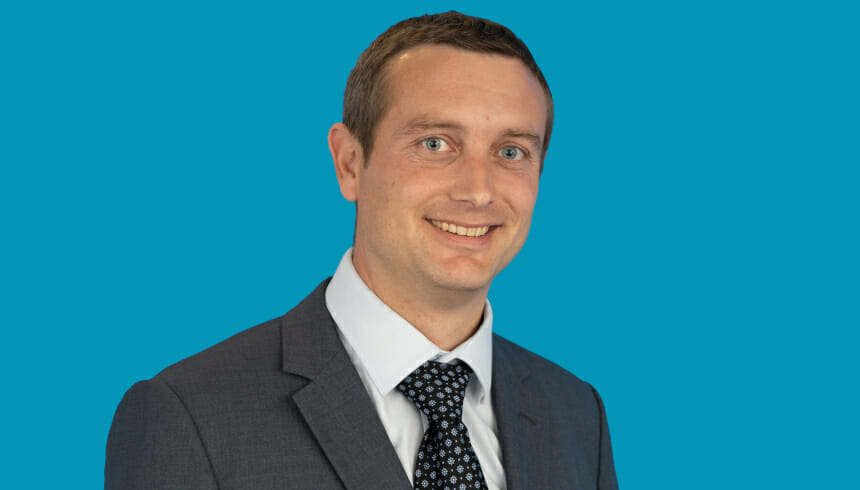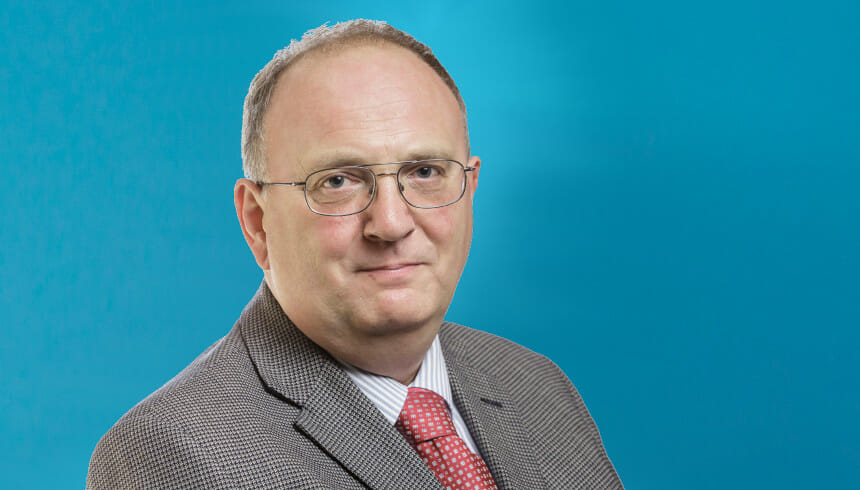James Morris

James completed his PhD researching a novel enzyme and its mechanism of action in blood cells, before undertaking six years postdoctoral research into the biochemistry of various cellular signalling pathways. In 2007 James took on a role at a small biotechnology company, where he ultimately became responsible for the chemicals production business, serving hospitals through the UK and Europe with histological stains. James built up the product stewardship requirements of the business, and qualified as a road transport Dangerous Goods Safety Adviser. James has since worked as a Product Steward, assessing and assigning hazard and transport classifications to new and reformulated petrochemicals products, for Shell and Gulf Oil. At Hawkins, he will be aiding both the Fire Investigation and Contamination teams, with his extensive knowledge of chemical reactions. James is a Senior Associate based in our Reigate Office.
Paul Moody

Paul completed his undergraduate degree in Metallurgy at the University of Birmingham in 1990. During this time, he was sponsored by British Steel and gained work experience at Swinden Labs in Rotherham. Paul later completed his Doctorate at the University of Birmingham, researching the fracture properties of welded structural steels in relation to the oxygen content of weld metals. The work was sponsored by ESAB, headquartered in Waltham Cross in London. After completing his studies in 1995, Paul began his career at the Defence Research Agency as a Research Scientist, working on welding of high strength naval steels and investigations of failed components. Following this, Paul worked as a Metallurgist at a number of firms including Bodycote Materials Testing Ltd, Ingenco Ltd (formerly Scottish Power Technology), and Doosan Babcock Ltd. Paul’s experience includes facilitating contract materials testing for the offshore oil and gas services industry, performing remanent life assessment on boilers for power plants and petrochemical sites, investigating failed components, and providing support on materials related issues. Since joining Hawkins in 2017, Paul has worked on cases involving escapes of water, personal injuries, petrochemical sites and boilers for power generation. Paul’s boiler and petrochemical site investigations have taken place in […]
Claire Mann

Claire carried out her first Masters Degree at Oxford University, where she remained to complete a DPhil at the Physical and Theoretical Chemistry Laboratory, working in collaboration with the Process Development Group of Syngenta. Claire then went on to pursue her interest in forensic science and studied for the Master of Forensic Science Degree at Kings College, London. During this time, Claire worked at the Forensic Explosives Laboratory and developed a GC/FTIR method for the analysis of explosives. Since joining Hawkins in 2006, Claire has specialised in the investigation of causes of fires and explosions. These cases have varied greatly in scale from relatively small domestic incidents to large commercial fires. Claire has also lent her chemistry background to the contamination team at Hawkins, where she has carried out post-fire, post-flood and post-chemical spill contamination investigations throughout the world. This work involves determining the effects of contaminants on buildings, production equipment, complex computer systems and products, including food stuffs and pharmaceuticals, and providing advice on the long term effects of the contaminants and best remediation techniques for recovery. During her time at Hawkins, Claire successfully completed the BOHS course for surveying buildings for asbestos and has since carried out asbestos […]
Eleanor Jay

Eleanor graduated with a 1st Class Masters Degree in Materials Science and Engineering from Imperial College London. As part of Eleanor’s first degree, she was employed at Industrial Research Limited in New Zealand (now Callaghan Innovation). Here, she developed specialised ceramic filters for the use in hydrogen cells, assisting in the purification of hydrogen. Following this, her PhD work involved researching ceramic materials for nuclear fuel storage applications (requiring high temperature and pressure resistance). During this time, she worked closely with several nuclear establishments across the globe with whom she collaborated. Eleanor also spent time at Nanyang Technology University in Singapore, where she investigated ceramic systems for a variety of energy applications such as fuel cells, including lithium-ion batteries. After completing her PhD, Eleanor was seconded to the Government Office for Science and the Department for Business, Innovation and Skills to be part of the Nuclear Energy Research and Development Review Board, chaired by the then Chief Scientist, Sir John Beddington. The work was commissioned after the House of Lords published a critical report on the future of nuclear energy in the UK. She assessed the UK’s nuclear energy landscape, which involved close communication with stakeholders across the nuclear industry […]
Ed Hammersley

After graduating from the University of York in 2002, Ed worked at analytical laboratories in Yorkshire and London, specialising in the field of analytical chemistry. He then moved to Pfizer in Kent, as an analytical research scientist within the pharmaceutical research and development group. During his nine years at Pfizer, Ed specialised in analytical method development and trace analysis for low-level impurities and contaminants in drug substances and products. A wide range of analytical techniques were used, with a particular focus on gas chromatography and liquid chromatography, both coupled with mass spectrometry detection. Some of this work was published in scientific literature and presented at conferences. Ed joined Hawkins in 2021 as a Senior Associate before being promoted to a Principal Associate. He has now conducted more than 850 forensic investigations. Those investigations have included fires, explosions, electrical incidents, contamination assessment, chemical reactions and escapes of water within domestic, industrial and marine environments. He regularly travels overseas to conduct investigations. Several of his high-profile cases have involved material losses of more than £10m, with some exceeding £100m. The marine vessel incidents have involved both engine room and cargo fires, including the TAC Imola, fires onboard large yachts and superyachts, and […]
Richard John Fletcher

Richard started his scientific career undertaking two six-month industrial placements during his third year of his Applied Chemistry degree at the University of Portsmouth. The first six months were spent working in the Chemistry Section of the Naval Aircraft Materials Laboratory (NAML) where he undertook a wide range of analytical work as well as being involved in investigating mid-air collisions of MOD aircraft. The second six months were spent working in the fuel additive section of Nalco Exxon Energy Chemicals, based at Fawley Oil refinery. He was responsible for testing and identifying the fuel additives for multi-national petroleum companies and the development of new additives. After completing his degree, Richard continued to study at the University of Portsmouth for his PhD, researching the effect of magnetic fields on the growth of sulphate reducing bacteria. After leaving University Richard worked for a Dorset based electronic and materials development company. He worked on projects to develop both corrosion monitoring equipment for helicopters, as well as crack detection systems for the rail industry. During his time at the company he worked within a team to investigate the cause of a major UK rail incident. In 2006 Richard joined Hawkins and quickly specialised himself […]
Christabel Evans

Christabel regularly investigates material failures, escapes of water and oil, system failures, and personal injury claims. She writes CPR compliant court reports and presents at industry awareness days.
Jonathan Emm

Jonathan’s engineering career began at Morganite Thermal Ceramics. Here he ran projects to develop a non-destructive testing technique for their foundry ceramic products, as well as a new product with very high thermal shock resistance. Jonathan joined BAE SYSTEMS in 2000 as an engineer in the Advanced Technology Centre, Stealth Materials Group. He ran development and application engineering projects there, mostly using elastomeric and composite materials as radar absorbent or transparent media. These were applied to military aircraft, ships and vehicles. This work enabled him to develop strong project management skills and in his last year he led a team of engineers and scientists in developing a sprayable, radar absorbent coating for aircrafts. In 2003 Jonathan joined Cytec Engineered Materials, where he ran qualification testing programmes for aerospace composite materials and provided technical advice and assistance to customers, particularly in relation to processing issues. His customers included Airbus, Boeing and Lockheed Martin, with whom he worked to incorporate advanced, recently developed materials into their aircraft structures. Jonathan joined Hawkins in January 2007, where he trained in the investigation of fires and explosions to add to his engineering expertise. Jonathan has now been involved with a broad range of forensic engineering […]
Graham Cooper

Graham obtained his first degree in Materials Technology from Coventry Polytechnic and his Masters degree in Advanced Materials Technology from the University of Surrey. He has been a Chartered Engineer since 1991 and is a Professional Member of the Institute of Materials, Minerals & Mining. After graduation, he spent 10 years with British Aerospace where he was primarily involved with materials development, manufacturing support and aircraft defect investigation. He went on to work for British Airways in 1995 as their company metallurgist and defect investigation specialist before joining Burgoynes in 1998. Graham has investigated over 500 mechanical and materials related cases including aircraft accidents and incidents, marine accidents and losses, road traffic accidents, rail accidents, oil and gas production and pipeline incidents, industrial process plant incidents and power generation turbine failures. He has previously worked in Singapore and has undertaken investigations in the UK, Ireland, Europe, South Africa, Middle East, Far East and Australia. He has acted as an Expert Witness and Single Joint Expert in litigation cases and has given expert evidence in civil and criminal court cases, arbitrations and mediations. Graham joined our Leeds office as a Principal Associate in August 2014, and is now based in our […]
John Camplin

John started his career in 1992 working as a research technician at the University of York, Chemistry Department where he provided technical support in analytical chemistry, polymer chemistry and surface analysis. In 1998 he was appointed research associate in the Physics Department investigating the optical effects of Giant Magneto Resistant (GMR) devices leading to the design and development of a Scanning Laser Microscope for GMR film mapping. In 2000 he moved to the University of California as a Research Assistant developing Scanning Tunneling Microscopes for the study of nanoscale surface structures. Two years later John moved back to the UK as a Principal Materials Scientist at BAE Systems InfraRed. There he took a key role in developing semi-conductor devices for InfraRed imaging, and computer models for semi-conductor optics. In 2005 John joined Hawkins. Having established himself in the field of fire investigation, he has also been involved in a broad range of forensic engineering investigations including road traffic accidents, mechanical vibration exposure, roller coasters and fairground equipment and semi-conductor engineering. John also has expertise in the areas of cryogenics, process engineering, vacuum engineering, optics and surface chemistry. John is a Principal Associate based in our Leeds Office.